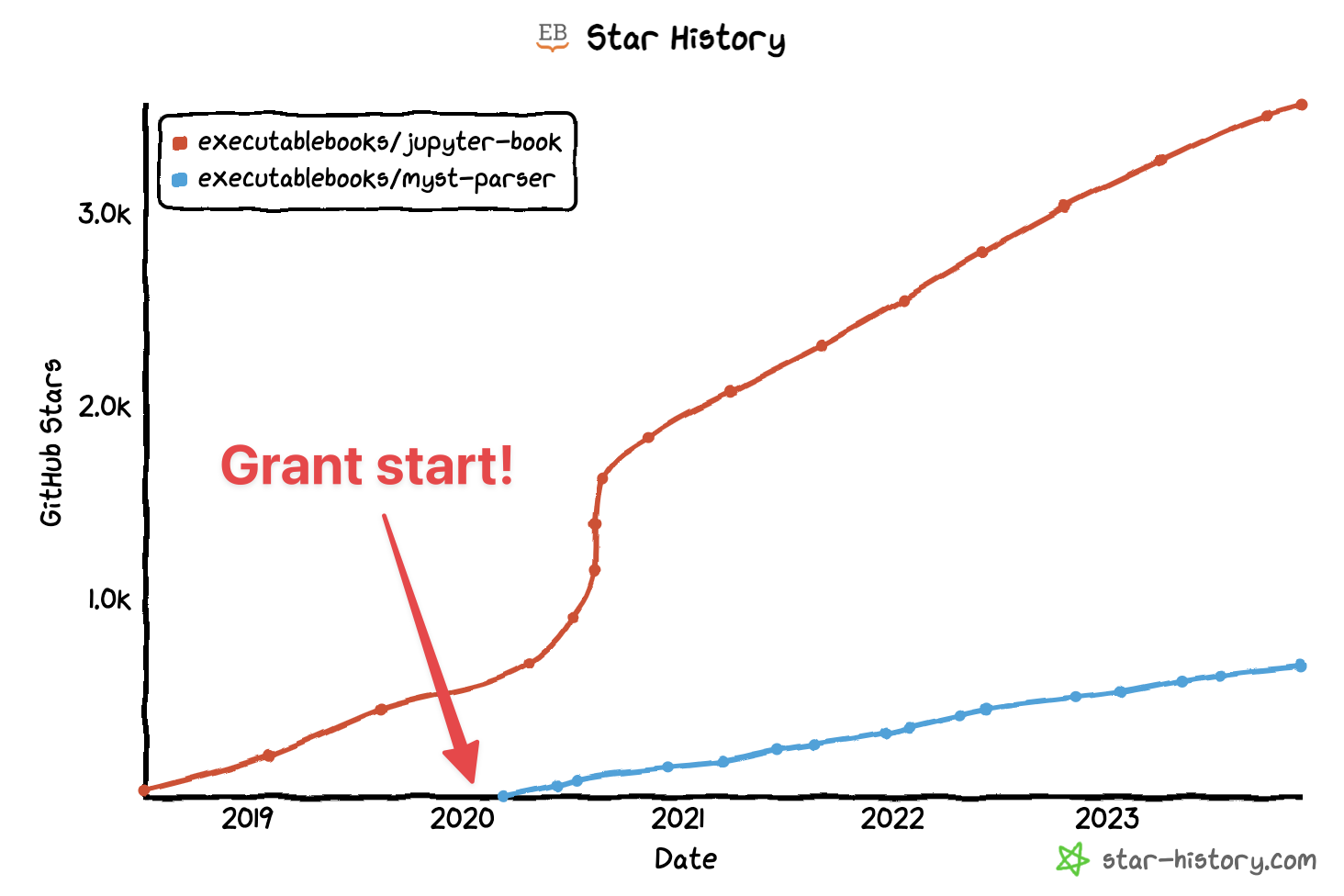Posts by Chris Holdgraf
Expanding our team and the next phase of Executable Books development
- 28 November 2023
Over the past three years, the Executable Books team has focused its efforts on building a Sphinx-based technical stack underlying the Jupyter Book project. This has been extremely successful, and Jupyter Book and the associated MyST ecosystem in Sphinx have gained adoption across both scientific and open source communities. The MyST Parser for Sphinx averages around 350,000 downloads a month, which makes up about 13% of all Sphinx downloads (https://www.pepy.tech/projects/myst-parser?versions=*). There are over 4000 Jupyter Books in public GitHub repositories (https://github.com/search?q=%22format%3A+jb-book%22&type=code), many of which are now featured at gallery.executablebooks.org.


Jupyter Book and MyST at AGU 2021
- 18 December 2021
The AGU 2021 conference just wrapped up, and Jupyter Book made a few appearances at the conference this year. Below are a few links to videos and Google Slides for each session.